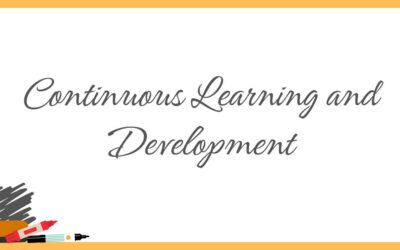In today’s complex and fast-paced world, leaders are faced with countless decisions that can have far-reaching consequences. Mindful decision-making offers a powerful approach for leaders to navigate these challenges with intention, wisdom, and integrity. In this lesson, we delve into the principles and practices of mindful decision-making, drawing insights from [Book Title], and provide practical guidance for leaders to integrate mindfulness into their decision-making processes.
Mindful decision-making involves cultivating present-moment awareness, deepening self-understanding, and considering the broader impact of choices on oneself, others, and the organization. By engaging in mindfulness practices, leaders develop a heightened ability to observe their thoughts, emotions, and biases without judgment, allowing for greater clarity and ethical discernment in decision-making.
Mindfulness practices, such as meditation, self-reflection, and mindful breathing, help leaders develop a strong foundation for making conscious decisions. By being fully present in the moment, leaders can bring a sense of focused attention and discernment to their decision-making processes. They become more attuned to their values, intuition, and the potential consequences of their choices.
Benefits:
- Enhanced Clarity and Focus: Mindful decision-making cultivates clarity and focus, enabling leaders to cut through distractions and make decisions with greater precision. By bringing a calm and centered awareness to the decision-making process, leaders can see beyond immediate circumstances and gain a broader perspective.
- Ethical Decision-Making: Mindfulness practices promote ethical discernment by heightening self-awareness and sensitivity to the ethical implications of decisions. Leaders who practice mindful decision-making are more likely to make choices aligned with their values, considering the impact on all stakeholders involved.
- Improved Problem-Solving: Mindful decision-making enhances problem-solving abilities. By approaching challenges with an open and non-judgmental mindset, leaders can explore a wider range of options, evaluate potential risks and benefits more objectively, and identify innovative solutions.
- Strengthened Leadership Presence: Mindfulness practices help leaders cultivate a strong leadership presence. By being fully present and attentive, leaders create an atmosphere of trust, authenticity, and openness, fostering stronger connections with their teams and inspiring confidence.
Strategic Ways to Implement Mindful Decision-Making:
- Cultivate a Regular Mindfulness Practice: Leaders can begin by dedicating time each day for mindfulness practices such as meditation, deep breathing exercises, or journaling. Consistency is key to building the habit of mindfulness and reaping its benefits in decision-making.
- Engage in Self-Reflection: Reflection is a powerful tool for self-awareness and growth. Leaders can set aside time for self-reflection, examining their decision-making patterns, biases, and values. This introspective practice enhances self-understanding and supports mindful decision-making.
- Seek Diverse Perspectives: Encourage a culture of open dialogue and seek diverse perspectives when making decisions. Actively listen to differing viewpoints, consider alternative approaches, and foster an environment where team members feel safe to express their opinions and ideas.
- Pause and Reflect: Before making important decisions, take a moment to pause, breathe, and reflect. This brief moment of mindfulness allows leaders to step back from the immediate pressures and gain clarity on the situation, potential consequences, and alignment with values.
Conclusion:
In conclusion, mindful decision-making empowers leaders to navigate complex challenges with clarity, wisdom, and ethical discernment. By integrating mindfulness practices into their decision-making processes, leaders can enhance their ability to make conscious choices that align with their values and positively impact their teams and organizations. Through the principles and practices outlined in [Book Title], leaders can cultivate mindful decision-making as a core competency, fostering a culture of ethical leadership and wise choices.
FAQs:
Can mindful decision-making improve problem-solving skills in a team setting?
Yes, mindful decision-making enhances problem-solving skills in a team setting. By cultivating present-moment awareness and open-mindedness, leaders can facilitate a collaborative environment where diverse perspectives are valued, leading to more creative and effective solutions.
How can mindfulness practices contribute to ethical decision-making?
Mindfulness practices promote self-awareness and sensitivity to ethical implications. By cultivating a non-judgmental mindset and considering the impact on all stakeholders, leaders can make decisions that align with their values and uphold ethical standards.
Is mindful decision-making applicable to all types of decisions, including strategic ones?
Yes, mindful decision-making is applicable to all types of decisions. Whether it is a strategic decision or a day-to-day operational choice, applying mindfulness practices can enhance clarity, ethical discernment, and the quality of decision-making.
How can leaders encourage their teams to adopt mindful decision-making practices?
Leaders can encourage their teams to adopt mindful decision-making practices by leading by example and creating a supportive environment. They can provide resources, such as mindfulness workshops or apps, and emphasize the benefits of mindfulness in decision-making during team discussions and training sessions.
Can technology tools or apps assist leaders in incorporating mindfulness into their decision-making processes?
Yes, there are various technology tools and apps available that can support leaders in incorporating mindfulness into their decision-making processes. These tools can range from meditation apps to productivity apps that remind leaders to take moments of mindfulness throughout the day.













